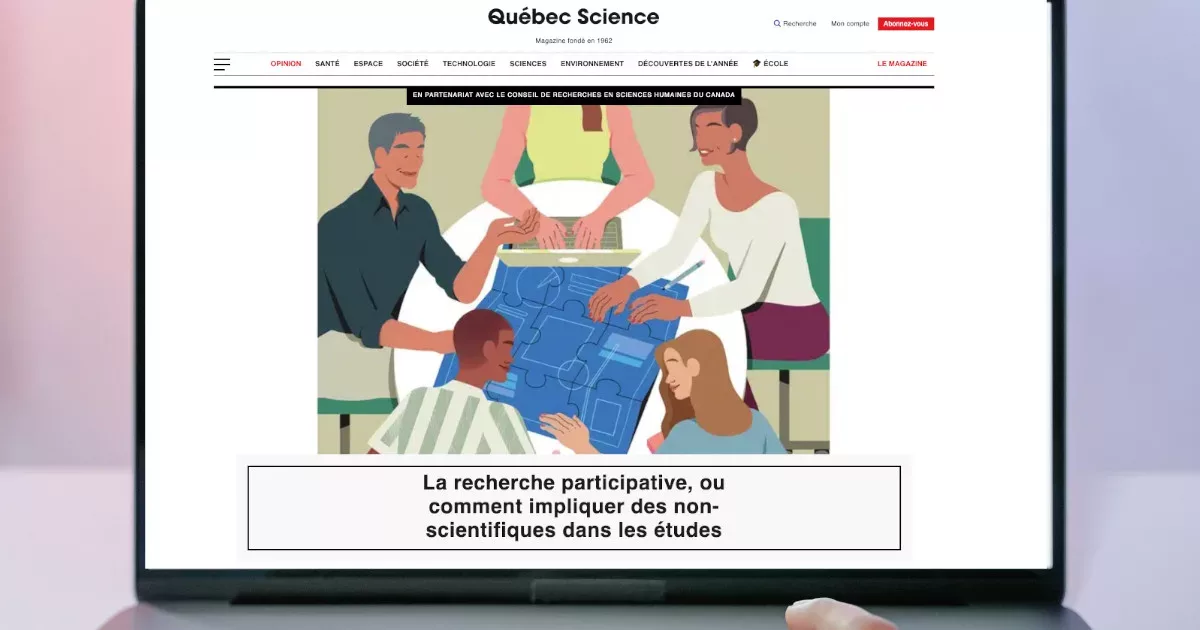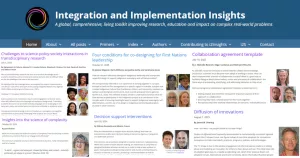Why is participatory research important? A view from Québec
In a Québec Science's compelling article, discover how participatory research is transforming who gets to do science — and how it’s done.

The excellent science magazine Québec Science a very interesting article, written by Sophie Mangado and published by . It is in French, but worth the read. Use your favorite translation tool or challenge your high school French if you have some!
“What happens when science steps out of the lab and into communities?” ask this article. From Indigenous knowledge holders to patients, farmers, and local citizens, non-scientists are actively shaping research questions, collecting data, and driving meaningful change. This piece highlights real-world examples from different parts of Québec, showing that when people outside academia get involved, science becomes more grounded, inclusive, and impactful. Whether you’re a researcher, policymaker, or community leader, this article offers a rich, thoughtful look at how participation improves both knowledge and outcomes.
Some examples
- At the Université de Montréal, a participatory research project on rare genetic diseases involves patients and their families in shaping research priorities. Their input helps scientists understand not only the biological mechanisms, but also the day-to-day challenges of living with such conditions — resulting in more relevant and humane research outcomes.
- In Quebec, farmers are working directly with researchers to test sustainable practices in agriculture and soil conservation. Their on-the-ground expertise influences experimental design, ensuring that scientific solutions are practical, not just theoretical.
- Citizen science initiatives allow locals to help monitor biodiversity and water quality. Volunteers collect data on invasive species or pollution levels in rivers and forests, empowering communities to take part in environmental stewardship.
- In Indigenous-led collaborations, traditional ecological knowledge is recognized as co-equal with academic science. This is especially important in areas like land use, conservation, and climate adaptation.
👉 Read the article here: https://www.quebecscience.qc.ca/societe/recherche-participative-impliquer-non-scientifiques-etudes/
SUBSCRIBE TO OUR NEWSLETTER
To stay up to date with our projects and the development of the EHC
Read more articles

Gian Francesco Giudice: “Ethical responsibility is essential in fundamental research”
From hypothetical black holes to environmental impact studies, CERN navigates risk, transparency, and moral responsibility at the frontiers of human

Dealing with the complexity of society and environment
A global toolkit for tackling complex problems with more than 600 different methods Ever wish you had a free toolkit

The Moon & the Global South: Voices, Risks & Promise
Researchers warn that without inclusive governance, the Moon could become “a new arena for old patterns of exclusion” When rockets

Borko Furht: “AI shouldn’t be given much autonomy without maintaining accountability”
Beyond Superintelligence: The Real Challenges of Keeping Humans ‘In the Loop’ Borko Furht is a professor in the department of